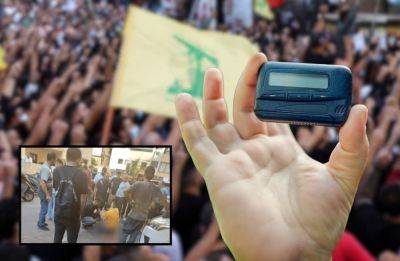Exploding pagers could ignite full-scale Mideast war
The alleged Israeli attack on members of Hezbollah via their pagers is another ominous development propelling the Middle East towards a full-scale regional war. It leaves Hezbollah with little option but to retaliate with the full support of the Iran-led “axis of resistance.”
The sophistication and impact of targeting the pagers are unprecedented. The attack resulted in at least 11 deaths, including some of Hezbollah’s fighters, and up to 3,000 people wounded.
The main aim of the attack, which US officials have reportedly said was carried out by Israel, was intended to disrupt Hezbollah’s means of communication and its command and control system in Lebanon.
Since Hezbollah has reduced the use of mobile phones by its forces because Israel can easily detect and target them, pagers have increasingly become the preferred messaging device within the group.
The attack may have also been designed to cause panic within the group and among the Lebanese public, many of whom do not support Hezbollah, given the political divisions in the country.
Since Hamas’ October 7 attacks on southern Israel, the Israeli leadership under Prime Minister Benjamin Netanyahu has repeatedly said it is determined to remove the threat of Hezbollah, which has operated in solidarity with Hamas.
Hours before the pager attack, Netanyahu’s government clarified that Israel’s war goals would expand to include a return of the tens of thousands of residents to their homes in northern Israel, which they have fled due to constant rocket fire from Hezbollah. Israel’s defense minister, Yoav Gallant, said the only way to do this was through military action.
The simultaneous pager explosions on Tuesday, then, may be a prelude to an all-out Israeli offensive against







